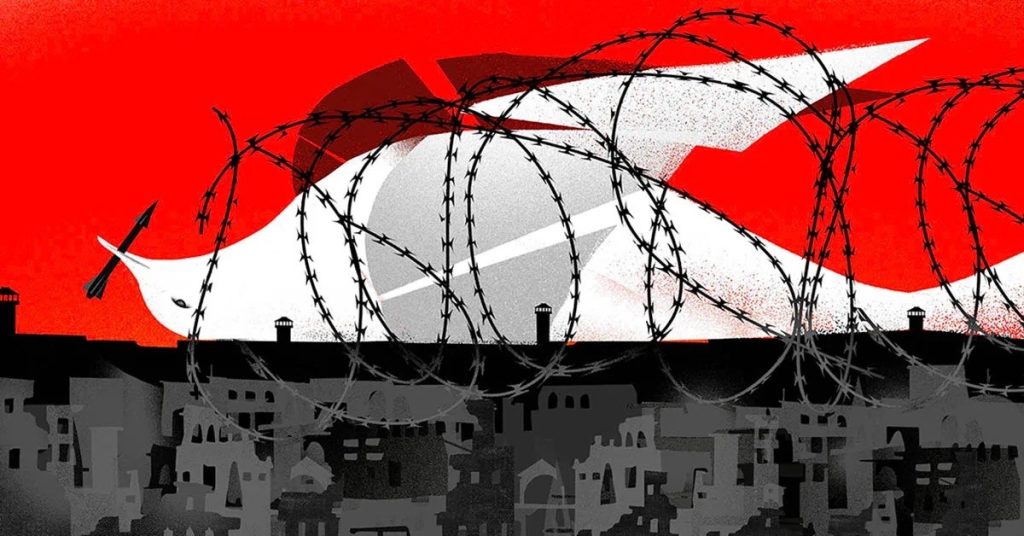Understanding the complex web of events playing out in the region is crucial given the turbulent nature of the Hamas-Israel conflict and its historical foundations. Theodor Herzl’s disappointment with liberal Hungarian nationalism gave rise to Zionism, which has been essential in determining the course of Jewish identity and statehood.
The realisation that the Jewish people faced an existential threat from the emergence of European ethnic nationalisms led Theodor Herzl to make the crucial decision to support Zionism. The failure of the revolutions in 1848 signalled the rise of ethnic nationalism throughout Europe, which fueled anti-Semitism and put Jews in danger of persecution.
By advocating for Palestine as the Jewish people’s ancestral homeland and challenging the widely held belief that Jews were alien to the West, Herzl aimed to create a haven for the Jewish people with Zionism. This ideological position provided a haven for Jews, but it also unintentionally exonerated the West of responsibility for the Holocaust and placed the onus of ensuring Jewish safety on the establishment of a Jewish state in Palestine.
Herzl’s vision has consequences that are felt throughout history, affecting not only a specific region but also the larger tale of the West. Israel’s military offensives on Gaza highlight the Western powers’ complicity in the ongoing conflict, as they are essentially an extension of Western dominance.
Moreover, Zionism’s ideology, which is typified by the quest for ethnic nationalism, has sustained a cycle of violence and uncertainty, trapping both Israelis and Palestinians in an unending condition of dependence and dread. The West ignores the structural injustices committed against the Palestinian people while maintaining a narrative of Israeli victimhood by portraying Israel as a bastion against imagined external dangers.
Zionism came into being as a result of anti-Semitism and ethnic nationalism coming together in Europe, as Győző Istóczy’s articles in the Hungarian Diet explain. Strong anti-Semitic remarks made by Istóczy laid the foundation for Herzl’s Zionist declaration by highlighting the ideological similarities between the two.
Zionism was not without its critics in the Jewish community, however, including the British statesman Edwin Montagu, who fiercely opposed the programme, calling it intrinsically anti-Semitic and fearing that it would fuel anti-Semitism throughout the world. The thoughtful discussion around Zionism and its effects on Jewish identity and diaspora groups is highlighted by Montagu’s foresighted cautions.
A climate of intolerance and xenophobia was sustained by the growth of ethnic nationalism in Europe, which was typified by the establishment of fascist governments and colonial racism. This ultimately led to the Holocaust’s crimes. The collaborationist Vichy dictatorship in France serves as an example of how European states were complicit in the spread of anti-Semitism, highlighting the lasting effects of colonial racism and ethno-nationalism.
Zionism was not without its critics in the Jewish community, however, including the British statesman Edwin Montagu, who fiercely opposed the programme, calling it intrinsically anti-Semitic and fearing that it would fuel anti-Semitism throughout the world. The thoughtful discussion around Zionism and its effects on Jewish identity and diaspora groups is highlighted by Montagu’s foresighted cautions.
A climate of intolerance and xenophobia was sustained by the growth of ethnic nationalism in Europe, which was typified by the establishment of fascist governments and colonial racism. This ultimately led to the Holocaust’s crimes. The collaborationist Vichy dictatorship in France serves as an example of how European states were complicit in the spread of anti-Semitism, highlighting the lasting effects of colonial racism and ethno-nationalism.
Prejudice and discrimination are cyclical, as evidenced by the comeback of anti-Semitism in modern discourse, which takes the form of Islamophobia. By demonising marginalised groups, established power structures are placated, and an atmosphere of mistrust and terror is maintained.
One cannot overestimate Israel’s importance as a strategic ally of Western countries, especially the United States, in the global arena. Global politics are intertwined, as seen by the alignment of Israeli interests with Western geopolitical goals, particularly in the areas of resource control and regional supremacy.
In the end, it is impossible to separate the Hamas-Israel dispute from Zionism’s historical foundations and the larger story of colonialism and empire. We can better understand the intricate interactions of forces forming the current geopolitical scene by placing the conflict within the context of historical legacies and power dynamics.
